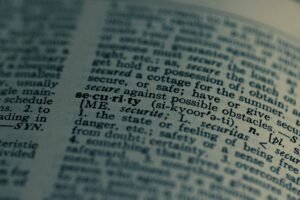Understanding the IELTS Listening Test
The IELTS Listening test evaluates your ability to understand spoken English in academic and everyday contexts.
Test Format
-
Duration: 30 minutes + 10 minutes to transfer answers
-
Sections: 4 (40 questions total)
-
Section 1: Social conversation (e.g., booking a hotel)
-
Section 2: Monologue (e.g., a speech about local facilities)
-
Section 3: Academic discussion (e.g., students and a tutor)
-
Section 4: Academic lecture (e.g., a university talk)
-
-
Question Types: Multiple-choice, form-filling, map labeling, matching, sentence completion
Top 5 IELTS Listening Tips for Success
1. Get Used to Different Accents
-
The test includes British, American, Australian, and Canadian accents.
-
Practice Tip: Listen to podcasts, news, and TV shows from different English-speaking countries.
2. Improve Concentration
-
Active listening is key—focus fully during practice.
-
Avoid distractions (practice in a quiet environment).
3. Follow Instructions Strictly
-
Word limits matter! If the instruction says “No more than two words”, writing three words = wrong.
-
Check spelling (e.g., “February” not “Febuary”).
4. Know All Question Types
-
Common types:
-
Multiple-choice
-
Form-filling
-
Map/Diagram labeling
-
Sentence completion
-
-
Practice each type to avoid surprises on test day.
5. Simulate Real Test Conditions
-
Listen only once during practice (like the real test).
-
Time yourself strictly (30 minutes, then 10 to transfer answers).
IELTS Listening Question Types & Strategies
1. Multiple-Choice Questions
-
Read all options before listening.
-
Listen for synonyms (the recording won’t use the exact words in the question).
2. Form-Filling (Section 1)
-
Predict answers (e.g., dates, names, numbers).
-
Spell carefully (e.g., “Jennifer” not “Jenifer”).
3. Map/Direction Questions
-
Visualize the map before the audio starts.
-
Note key landmarks (e.g., “next to the library”).
4. Sentence Completion
-
Guess the word type (noun/verb/adjective) before listening.
-
Check grammar (singular/plural, verb tense).
5. Matching Information
-
Read all options first.
-
Eliminate wrong choices as you listen.
How to Improve Your Listening Skills
1. Daily Listening Practice
-
Podcasts: TED Talks, BBC 6-Minute English
-
News: BBC World Service, NPR
-
TV Shows/Films: With English subtitles
2. Practice Tests Under Exam Conditions
-
Use official Cambridge IELTS books for real test practice.
-
Review mistakes to avoid repeating them.
3. Build Vocabulary & Note-Taking Skills
-
Jot down keywords while listening.
-
Learn academic words (common in Section 4).
Test Day Checklist
✅ Arrive early (avoid last-minute stress).
✅ Bring ID and water (no food allowed).
✅ Write clearly on the answer sheet (neat handwriting matters).
✅ Use ALL CAPS if unsure (avoids lowercase/uppercase errors).
IELTS Listening Band Score Conversion
| Correct Answers | Band Score |
|---|---|
| 39-40 | 9.0 |
| 37-38 | 8.5 |
| 35-36 | 8.0 |
| 32-34 | 7.5 |
| 30-31 | 7.0 |
| 26-29 | 6.5 |
| 23-25 | 6.0 |
| 18-22 | 5.5 |
Final Tips for a High Score
✔ Predict answers before listening (e.g., numbers, names).
✔ Don’t leave blanks (guess if unsure).
✔ Double-check spelling in the transfer time.
✔ Stay calm—if you miss one answer, move on!





